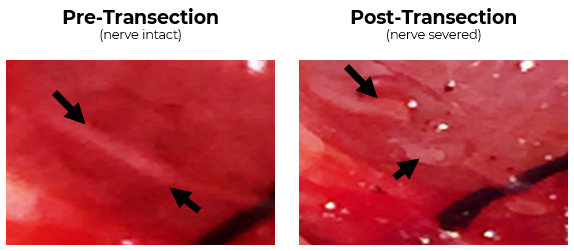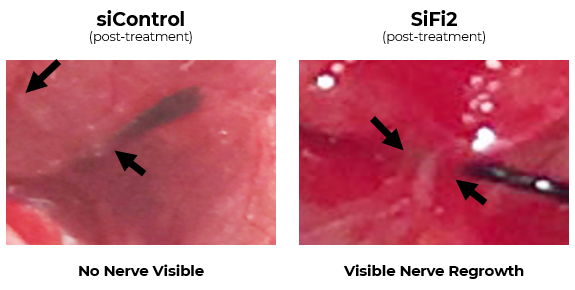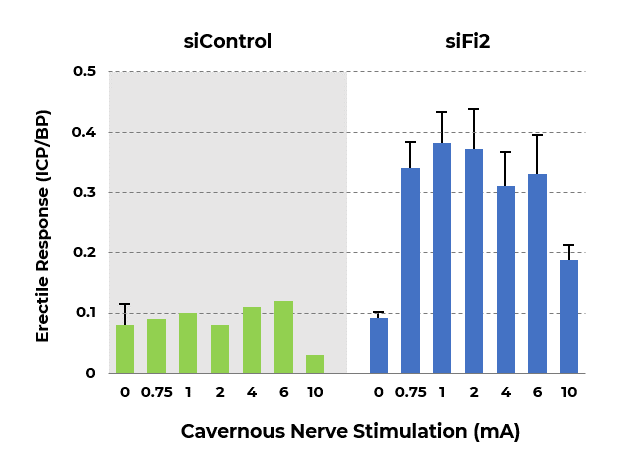Cavernous Nerve Regeneration
In conjunction with the National Institute of Health, MicroCures is developing specialized formulations of MCR-420 to enhance regeneration of the cavernous nerves and other peripheral nerves after injury.
Preclinical research suggests that MCR-420 accelerates healing of peripheral nerves. Specifically, using MCR-420 to silence of FL2 activity has regenerated neural tissue after injury in preclinical models, resulting in significant functional recovery compared with controls. MicroCures is advancing a preclinical stage program evaluating the therapeutic potential of MCR-420 for cavernous nerve repair.
Erectile dysfunction after radical prostatectomy
Preclinical studies by MicroCures and our academic collaborators at The Albert Einstein College of Medicine demonstrate that application of MCR-420 to the cavernous nerves after injury enhances nerve repair and leads to recovery of erectile function (Baker et al., 2021). Application of MCR-420 after nerve crush led to a full recovery of erectile response in rats several weeks after injury and treatment, while control treated rats showed very limited to no recovery of erectile response to nerve stimulation. More impressively, after complete transection of the cavernous nerves (an injury that results in a gap of several millimeters between the severed nerve endings) application of MCR—420 led to nerve regeneration and partial recovery of erectile response:

The cavernous nerves were transected in adult male rats, leading to a gap of 3-to-4 millimeters between the severed ends. The proximal portion of the severed nerve was then treated with a control siRNA formulation (siControl) or MCR-420.

Within two weeks, animals treated with MCR-420 displayed visible regeneration of the transected cavernous nerve, while no regeneration was apparent in controls.

Additionally, in MCR-420-treated animals, stimulation of the cavernous nerve above the point of transection induced a significant erectile response, even at low levels of stimulation. There was no erectile response in control-treated animals.
Based on these results, the National Institute of Health is partnering with MicroCures to develop unique hydrogel formulations of MCR-420, which can be easily applied onto the cavernous nerves and other damaged peripheral nerves to promote nerve healing.

